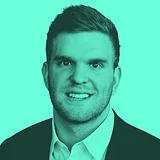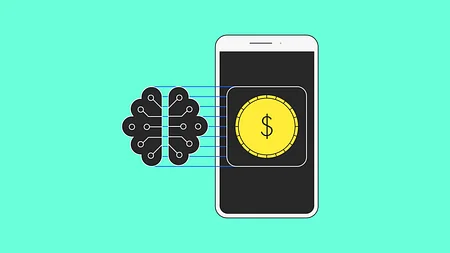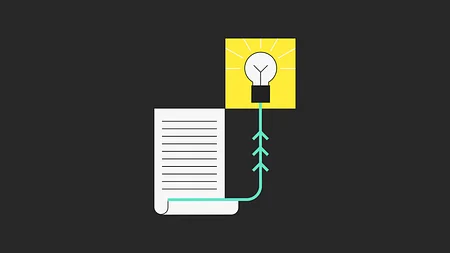It’s time to make year-end reviews more human

Delivered straight to your inbox
Get each edition of Unfiltered - our no-BS, uncensored analysis of fintech news and hot topics sent to your inbox each fortnight.
Find out more
One of the phrases you often encounter when reading things about mental health is "It's OK to not be OK." Whilst I get the sentiment, as someone who has been there, it really isn't OK. It sucks.
As we rapidly approach the end of the year, now is an important time to be talking about mental health. December comes as a checkpoint for many who have been suffering from burnout, justifying the extra workload or stresses they’ve taken on by repeating ‘if I can just get to the end of the year’ to themselves.
From a business sense, research shows it’s your most engaged employees who are most at risk of burning out. And after what has been a tough year for many industries, it’s bound to spike again this festive season.
No matter what every other podcast out there says, we can't succeed at absolutely everything we throw our hands at.
What we can do vs what we should do
There is a tendency, even a pressure, to conflate these two things in our modern approaches to work and life. But just because we can do something, or can achieve something, doesn't necessarily mean we should.
Prioritisation is an important skill we learn with experience, but I think there is a more nuanced area of prioritisation that is underdeveloped - how to accept discarding things from your to-do list entirely.
No matter what every other podcast out there says, we can't succeed at absolutely everything we throw our hands at. However, we live in a society where unrealistic expectations seem to be the norm.
These expectations are set at a young age and continually reinforced, the 'cans' and the 'shoulds' of the world are deliberately conflated in an attempt to drive success and achievement. But what are these successes and achievements if you're too burnt out to enjoy them? Or your physical or mental health is sacrificed on the pyre of achievement?
We need to look at how we articulate achievement to younger generations and pivot this towards sustainable achievement and how to set boundaries effectively.
Setting limits
There's a common misconception that you can only burnout if you're working silly hours. Whilst workload certainly plays its part, in my experience, it's more about your relationship to work.
Striving for perfection on multiple fronts is inherently counterproductive. But, again, that doesn't stop us from trying. The standards we hold ourselves accountable to are important, but they may become detrimental to our mental health. Of course, people will throw out the 80:20 rule in situations like this, but how easy is that in practice? How accepting and understanding are we of colleagues hitting 'good' vs. 'outstanding' in reality?
There’s plenty of literature out there, each pushing some new way of making yourself more efficient and effective, but there is far less on how to offset this by setting personal boundaries to respect the limits of your body and mind. I think developing this as a business competency would drive benefits for employees and employers.
Seeing conversations around mental health come out of the shadows in recent years has been great to see, but it means nothing if the conversations go nowhere. It’s simply not enough to start the conversation, we need to find actionable ways to normalise prioritising your mental health and taking control of it.
Introducing Mental Health Mondays
This was all brought home to me in the summer when a close friend of mine lost his battle with mental health. We lost a wonderful human being, and someone I really looked up to. This affected me deeply, and continues to do so. It’s a scenario way too many of us now have experience of. As a society, we need to do more.
Out of this Mental Health Mondays was born. Mental Health Mondays is a movement that encourages people to set aside time each Monday - for many, a difficult day of the week - to do something specifically for their mental health. The idea is to not only ‘start a conversation’ but to normalise taking direct action each week for your mental health.
At 11:FS, we've created an MHM channel on Slack where we share what activities we're doing on a Monday for our wellbeing. Maybe this is something you'd like to try at your companies using whatever your favourite collaboration tool is. 🤓
Mental health is as much a contextual problem as it is a medical one.
My Unfiltered opinion
Mental health is as much a contextual problem as it is a medical one. This is arguably the most important lesson I’ve learnt from my MHM conversations. Our lives are all changing constantly, both personally and professionally, which means our mental well-being can take a hit at any time from factors out of our control. Employers need to take into account these contextual factors when it comes to understanding their employee’s mental health and assessing ‘performance’.
And as for burnout, know that it’s OK to ask for help. Pressing the panic button when you are struggling is not a weakness. That’s the part of ‘not being OK’ that we need to normalise. We must try to understand the bigger picture of what we are all facing in life. It could well be that the core issues are outside of, rather than within, our minds.
As Christmas approaches, let’s remember that we’re all in this together. Let’s not just start a conversation; let’s create real change. #MentalHealthMondays




